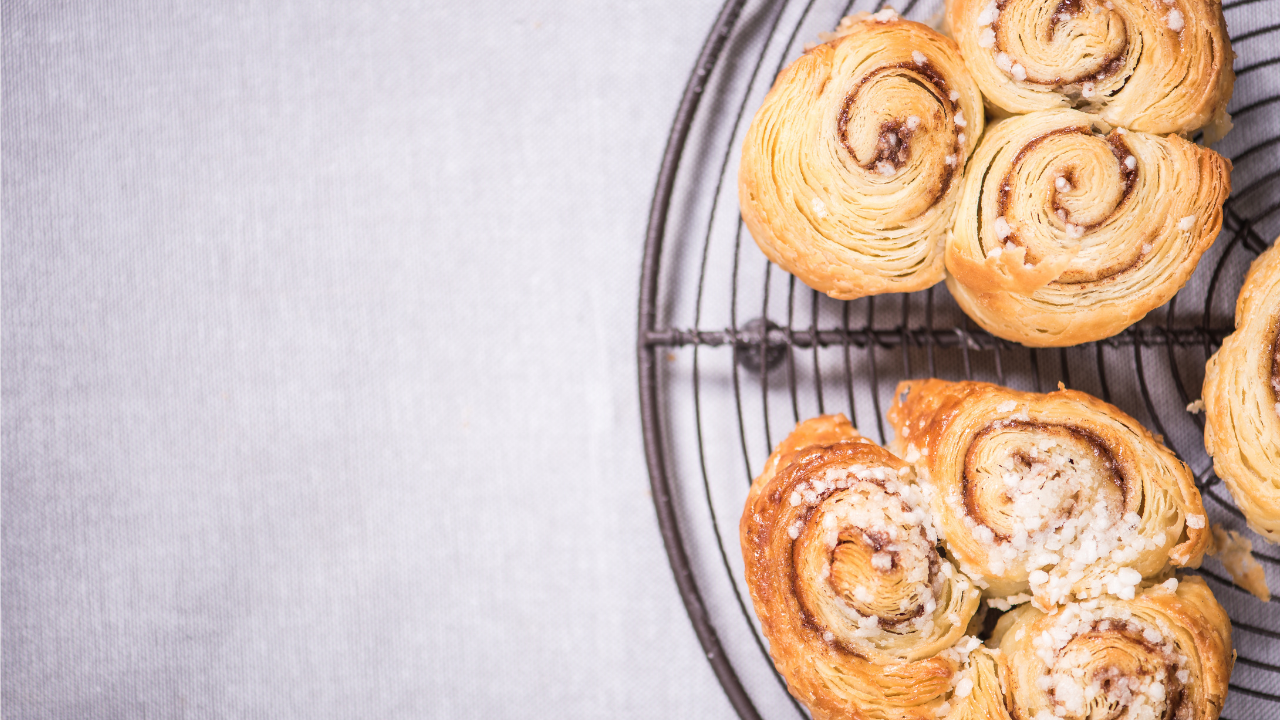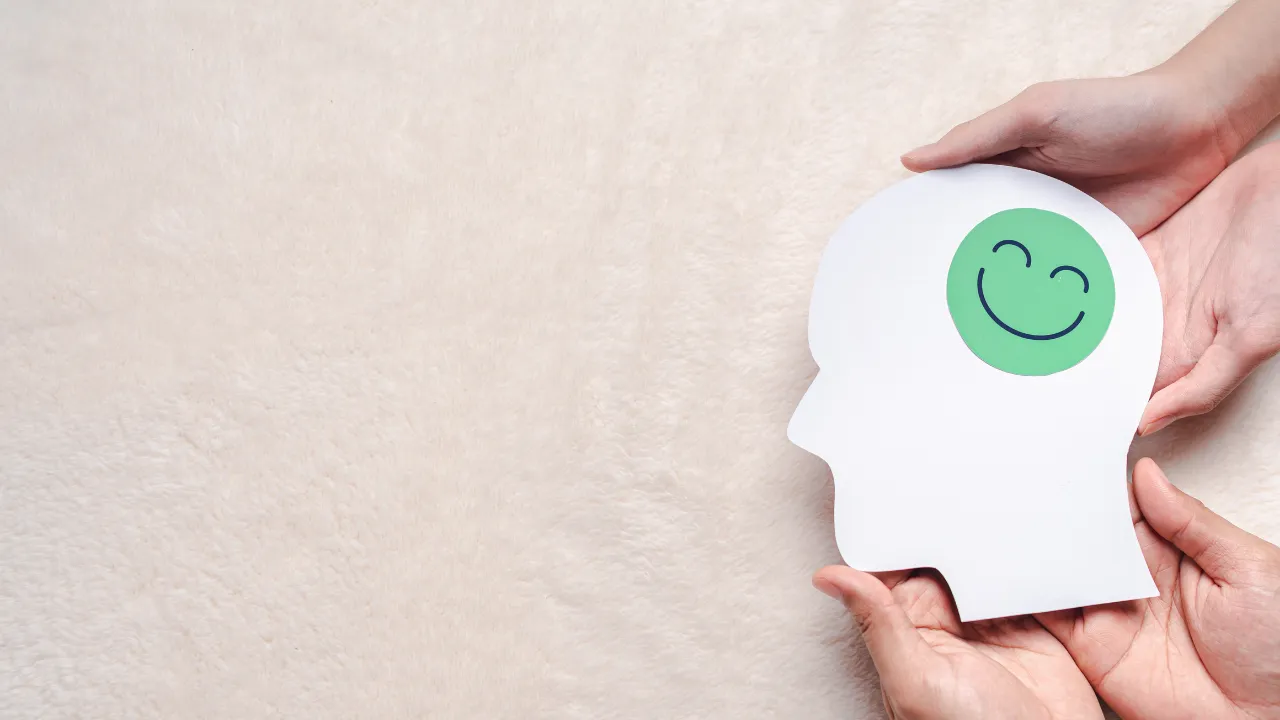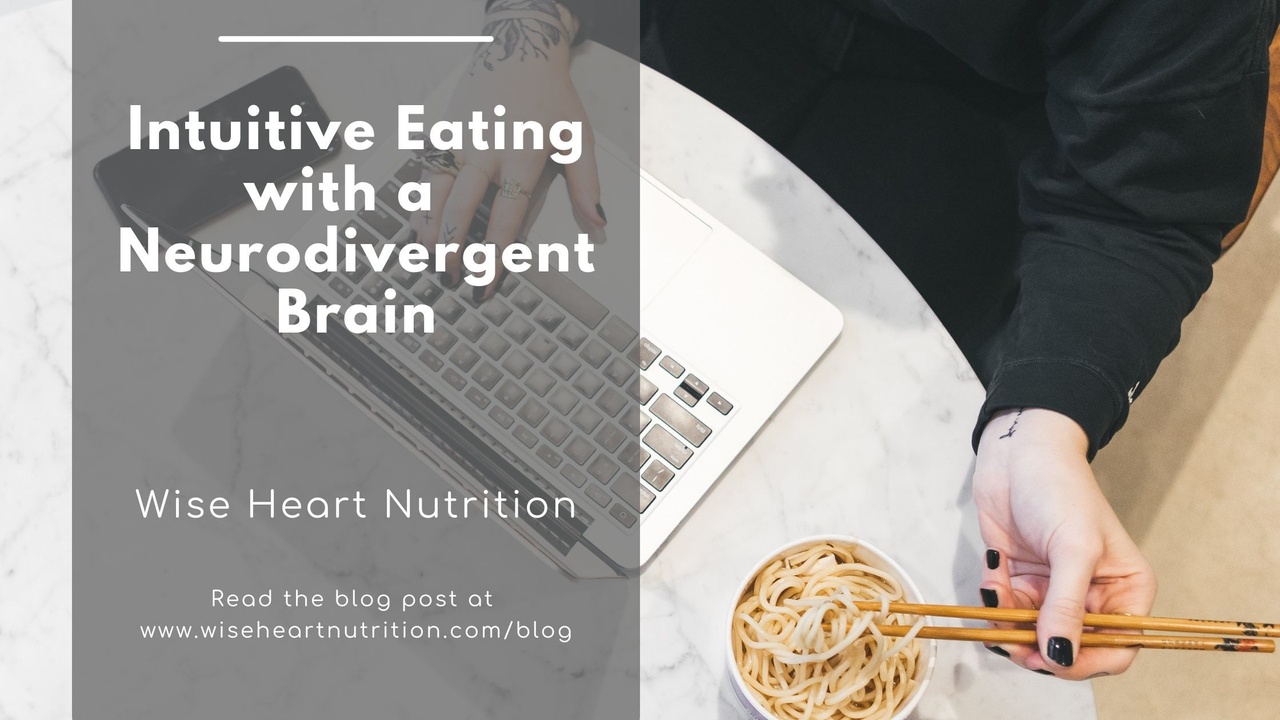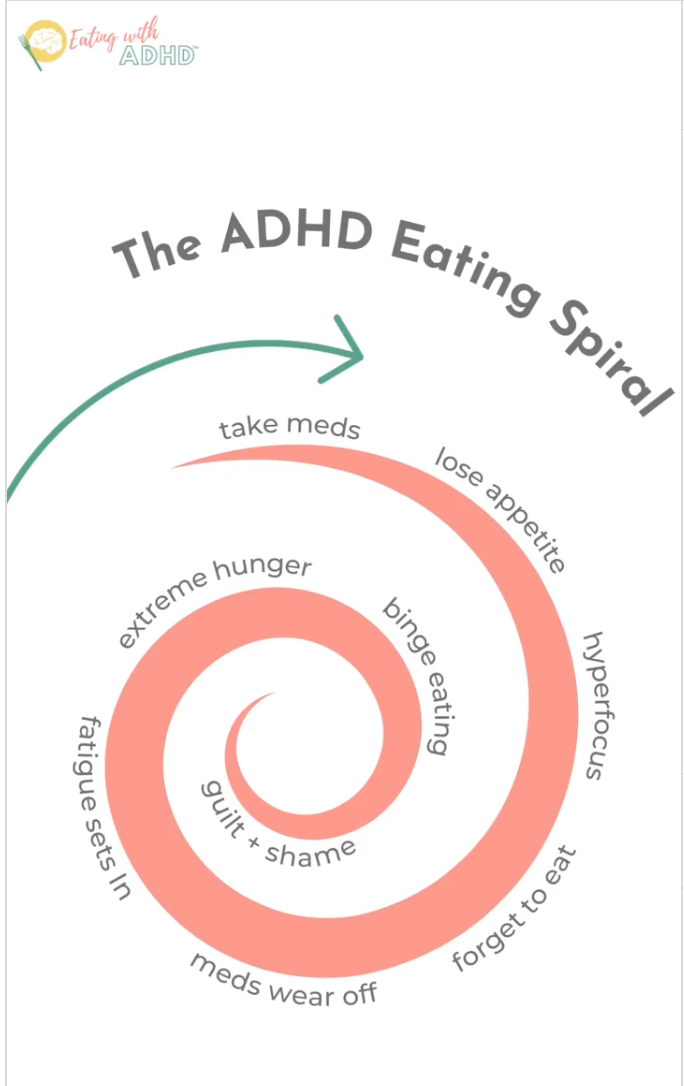Wise Heart Nutrition Blog:
All Things Anti-Diet, Intuitive Eating, and ADHD
What's the ADHD Eating Spiral and How Can I Get Out of It?

As a human who is eating with ADHD, you likely experience some *unique* patterns and habits around food and eating. Even when you do your very best to nourish yourself, you might often find yourself in a pretty sticky ADHD eating spiral.
Medicated for ADHD or not, it’s hard to snap out of hyper-focus, hard to hear and understand your special and subtle hunger cues, hard to face the steps on steps on steps it takes to get food from the kitchen to your mouth, and with an undernourished mind and body, your animal instincts can quickly become a barbaric sensation of NEED FOOD, ME HUNGRY… NOW! And thanks to diet culture, there is a steady stream of guilt, shame, and self-judgment that follows all of this.
That my friends, is what the Wise Heart team likes to call the ADHD Eating Spiral.
*click to check this post out on our the_adhd_rd Instagram!*
And for those of you that are of the unmedicated ADHD variety, this spiral has a similar loop but a different flavor to it. If you a...
Feeling Restless? Add Some New Tools to your Toolbox!

Transitions, changes, the unknown. Boredom, monotony, lack of stimulation. Both sides of the spectrum, both faces of the coin, can bring a sense of restlessness within us. It can feel unsettling in the body and for many of us, it’s hard to sit and be with that buzzy feeling of unease.
Our natural human instinct is to sound the brain sirens, react to that restlessness, impulsively grab the quickest and trustiest toolbox tool we’ve got, and hope the discomfort can be pacified, just for a moment, please!
So what does that trusty tool look like for most of us? Like a mother that gives a bottle to a crying baby, our lifetime body wisdom tells us food will comfort, console, and bring relief to us during those pesky periods.
And yes! Lived experience has shown us time and time again that the action of eating does soothe the ever-so-ancy soul. It is a tried and true tool in the emotional toolbox and because it’s also linked to the nourishment of this living and breathing body, i...
Moving Towards Being More KIND in our MIND: 3 Practices to Start!

I’m sure I’m not the only one that needs to hear this (and could really use the reminder #forever&always ♾) but boy oh boy can it feel like an uphill battle to be kind in our highly stimulated minds! The not-so-kind-in-our mind thoughts can feel like second nature, like a smooth and deeply grooved neural pattern to berate and beat ourselves up with. Whether it’s something we said last week, something we did yesterday, something we ate today, or something we’re actively thinking about (“WHY AM I THINKING THIS WAY?” 🧠inception🧠) it still leaves us feeling worse for wear in our mind and body and keeps the un-kind groove… groovin’.
Our quirky and unique brains can easily get on the un-kind merry-go-round, but have a hard time getting off once the cycles and circles are in motion. The thoughts are painfully stimulating! Emotionally charged! And it can feel like they’re firing on all cylinders up there.
So how can we *shhhhhh* quiet down the un-kind chatter in our brains? Keep read...
Doing a "Basic Needs Check-In" During a Hyper-Focus Flow: 3 Easy Tips

Picture this. Early morning sun streaming through the window, you have your (most likely a bit procrastinated?) project in front of you, you adjust your horse blinders, activate your tunnel vision, and become obliviously passionate at the task ahead of you: *write write write* *read read read* *click click click*. Let the hyper-focus flow commence...
🧠
🧠
🧠
Time passes, how long you’re not sure.
Your vision has blurred, your brain is pulsing, and you make the courageous decision to check what time it is. Here we are again, old friend. You did that fun ADHD thing *again* where you hyper focused past the point of rational rhyme and reasoning. Oops!
Nourishment and hydration were far away concepts during those hours and you’ve reached the state of ravenous reptilian brain. All earnest sense of “I planned on making this…” have *vanished* and your kind compassionate frontal cortex (and all the organs for that matter) are patiently waiting for their basic needs to be met before you’r...
Rethinking Intuitive Eating for Neurodivergent (ADHD, Autistic) Brains

You may have heard (or even felt) criticism that intuitive eating is not possible for neurodivergent (i.e. ADHD, Austistic) people. At Wise Heart Nutrition, we reject that all-or-nothing thinking and invite you to explore our approach, and see how intuitive eating may need to be modified to be realistic for you. Here, we reframe each of the 10 principles of Intuitive Eating to be inclusive of neurodivergent folx. It might not feel ~magically intuitive~, but setting up systems that work for you in order to honor your body’s needs with compassion is 100% intuitive eating.
Reject the Diet Mentality... even if you don't diet.
While this is obviously easier said than done, everyone can embrace this first principle. It helps to learn more about how diets don’t work. Like how in 90-97% of cases, those who lost weight will gain it back within 2-5 years; and about ⅔ of people will gain back even more weight than they originally lost. The diet and weight loss industry made $78 BILLION ...
Is Food Variety Important and Possible with a Neurodivergent Brain?

Are nutritional guidelines helpful for everyone?
Dietary variety (eating lots of different foods from all the different food groups) has long been considered a pillar of “good nutrition”. Blanket dietary recommendations like this are intended to support the greater population, but when these guidelines are solely focused on nutrients and physiological health, many groups of people get overlooked, left out, and placed in a disadvantaged position where health and wellness (when measured by whether or not a person is meeting a given recommendation) are essentially out of reach. And when these folx continue to chase after an impossible standard, other aspects of health (mental, emotional, relational, financial, etc.) suffer… and that isn’t really supportive of health at all.
When we talk about health, instead of trying to fit everyone into one box, we need to consider and understand what is REALISTIC, CONTEXTUAL, ACCESSIBLE, POSSIBLE, and SUSTAINABLE, and we need to recognize that...
Eating with ADHD®: Why Prioritization Matters?

Eating when you have ADHD can be overwhelming.
You planned to eat something, but then you got sucked into the ADHD black hole and totally forgot. Suddenly, it’s 5pm and you feel this primal, intense pull towards the kitchen cabinet, and find yourself in a frenzy, grabbing and eating cookies, chips, gummy bears, and peanut butter without actually enjoying any of it.
Or maybe you open the fridge and see the ingredients you bought to make dinner, but the thought of cooking brings on a flash of overwhelm, so you quickly order delivery for the 3rd time this week.
Or perhaps you have some meal options that sound doable, but in the moment, literally nothing sounds appetizing, so you just feel angry, irritated, and intensely emotional… and you end up curling up in a ball and avoiding all things food.
Yep. I’ve been there too. And for many years I thought that a) I lacked discipline and willpower, b) I had no motivation or impulse control, and c) I was a picky eater and there was not...

